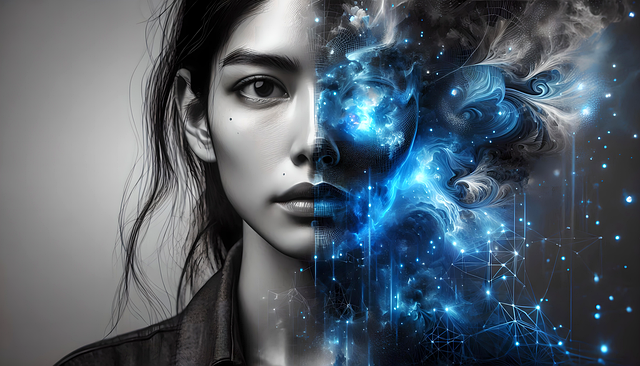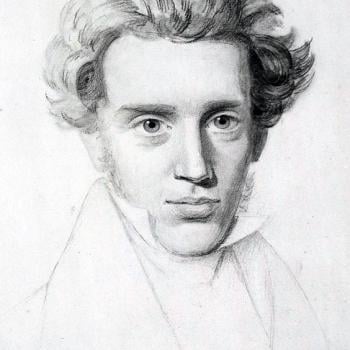I present this not because I believe it but just to show you that secularist materialism is starting to fade.
I came across a curious conversation at the British “free thinker” site Unherd entitled Modern Science Has Lost Its Mind. I think the editors were trying to express in a clever way a theme of the article, that modern science remains unable to account for “mind” or “consciousness,” which has given rise to this new theory.
The article is a conversation between neuro-scientist Iain McGilchrist and philosophy professor Philip Goff on the topic of panpsychism, the view that all things possess some level of consciousness and that “the mind is a fundamental feature of the world which exists throughout the universe.” This view actually has a long history, as the Wikipedia article from which I took that quotation shows.
Here is how the article introduces the topic:
Goff: Very roughly, panpsychism is the view that consciousness goes all the way down to the fundamental building blocks of the physical universe. So it’s a question for physics — what the fundamental building blocks are — but for the sake of argument let’s say they’re particles like electrons and quarks. Panpsychists think those fundamental particles have very rudimentary forms of conscious experience, and that the very complex consciousness of the human or animal brain is somehow built up from these simpler forms right at the base of reality.
For decades, we’ve been trying to explain consciousness in terms of physical processes in the brain — and that has gone precisely nowhere. It’s not just that we don’t have the full story yet, we haven’t managed to explain a single experience in terms of patterns of neural firings.
I like to give the analogy of Copernicus. For centuries, people started from the assumption that the Earth was in the centre of the universe, and tried to understand astronomical observations on that basis. But it couldn’t be done. Then Copernicus sweeps all that away: by showing that the sun, not the Earth, is the centre of the universe. I feel that way about consciousness. If you turn our assumptions upside down, if you start from consciousness being foundational, then try to make sense of physical reality emerging from that, it suddenly all makes sense.
They explain that they are not saying that everything–stones, atoms, quarks–are conscious in the same sense that human beings are conscious, with feelings, beliefs, desires, and self-reflection. But they contend that these inanimate objects do have some level of very simple consciousness.
McGilchrist: . . . I think, indeed, that the whole universe is conscious, and that consciousness is an ontological primitive. You can’t get behind it and find something that causes it, and that is in keeping with the traditions of many cultures, particularly in the east, that consciousness is something primary.
It’s very difficult for us to imagine that something like a stone is conscious. But what would you say to the idea that it is part of a bigger conscious system? In other words, panpsychism can mean two things: either that psyche is in everything, or everything is in psyche. My way of thinking of it is that everything is in psyche and partakes of its nature.
It sounds to me that just as materialists think everything is composed of fundamental bits of matter that come together into complex systems, the panpsychists think everything is composed of bits of mind that come together into complex systems. But then Goff gets to a bigger question:
Goff: It’s the job of physicists to tell us what the “fundamental things” are, and we tend to think of them as particles, little billiard balls. But actually, many theoretical physicists are inclined to think that universe-wide fields are those fundamental things. And if you combine that with panpsychism, we reach what’s sometimes called cosmo-psychism. Meaning? The fundamental thing is the conscious universe.
This gets us on to the other thing I wanted to ask you about: God. If the universe is in some sense conscious, would that be God? Is there any connection to God? Or are these just entirely different?
McGilchrist says that they aren’t different at all. Goff agrees, saying that the notion of a divine consciousness underlying all things is a staple of eastern religions, including, he says, Eastern Christianity. Both say they believe in God. McGilchrist says he is a panentheist. Not a pantheist, who believes that God is all things, but a panentheist, who believes that God is in all things.
Both men get cagey at this point, not wanting to say too much about religion or their personal religious beliefs. McGilchrist says that “I happen to think that the mythos of Christianity is the deepest and richest of any religion in the world,” but that he doesn’t want to proselytize for a particular religion or view of God.
Goff says that he himself was drawn “back to religion” by discovering the “discovering the mystical traditions that are found in all the Abrahamic faiths.” Sounding Eastern Orthodox, he says that the Eastern Orthodox don’t put all that much emphasis on sin, though I don’t see what that has to do with the question at hand.
He says, “God isn’t interested in finding someone to punish for our sins. That was invented by the Protestant reformers 500 years ago.” That would be news for St. Paul, St. Augustine, St. Anselm, and the Catholic Church in general. Also the Eastern Orthodox Church, which does have a theology of Christ’s atonement and forgiveness of sins, though it downplays original sin and stresses theosis rather than justification.
This tip-toeing away from sin demonstrates what I have often said, that the real issue in today’s unbelief is not so much the existence of God, but the existence of sin. People today are so desperate to evade the fact of their sinfulness that they will deny the existence of God in an attempt to convince themselves that they will not be judged for their sinfulness. They deny their need for redemption and so shut out the grace and forgiveness God gives in Christ.
I digress, as Goff and McGilchrist do. I would like to ask them, though, if mind underlies matter, as they say, wouldn’t that be accounted for just as well by the classical doctrine of God as the Creator of all things? He created and upholds the universe by and in accord with His mind and consciousness, His Logos, who became flesh in Christ (John 1:1-18) and who does indeed fill all things (Ephesians 4:10). Is it really necessary to posit the consciousness of quarks and stones if we accept the orthodox, Biblical doctrine of creation?
I don’t think it is, but it is surely significant that contemporary thinkers in secular publications are thinking along these lines and are giving up on the “billiard ball” assumptions of naturalistic materialism.
Image by Brian Jones from Pixabay














